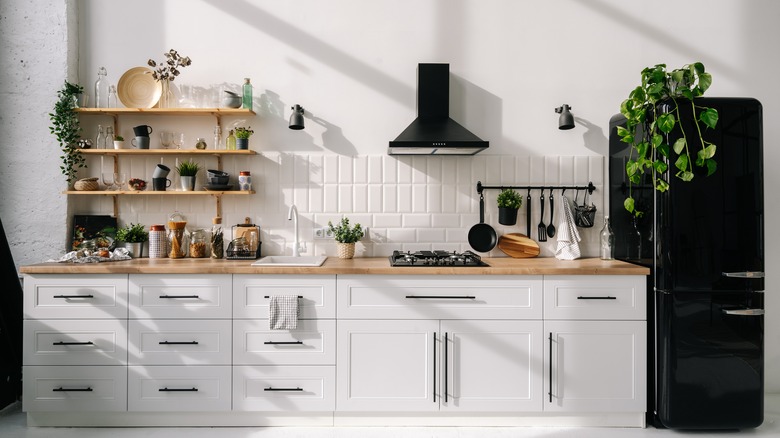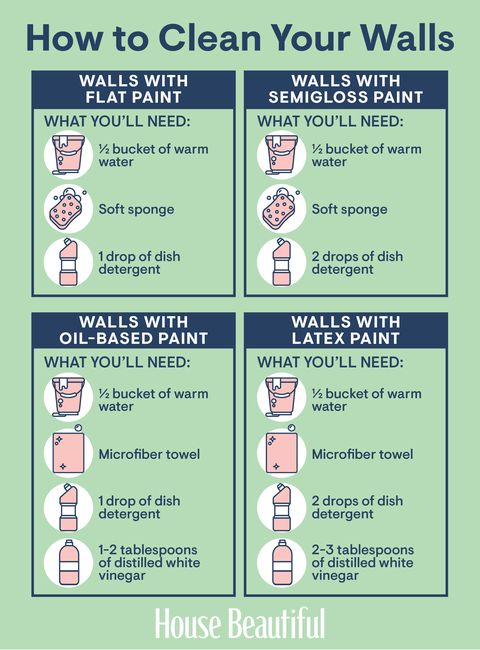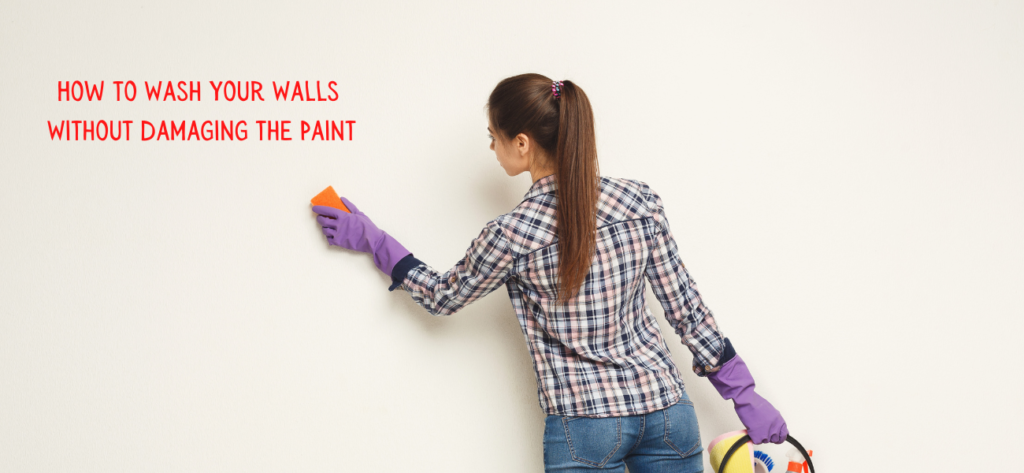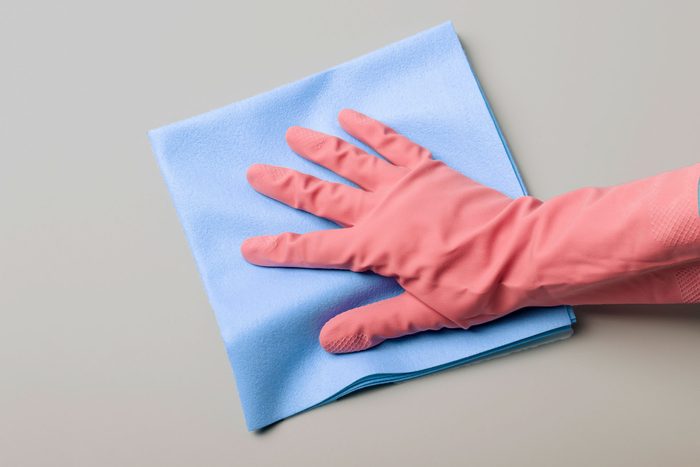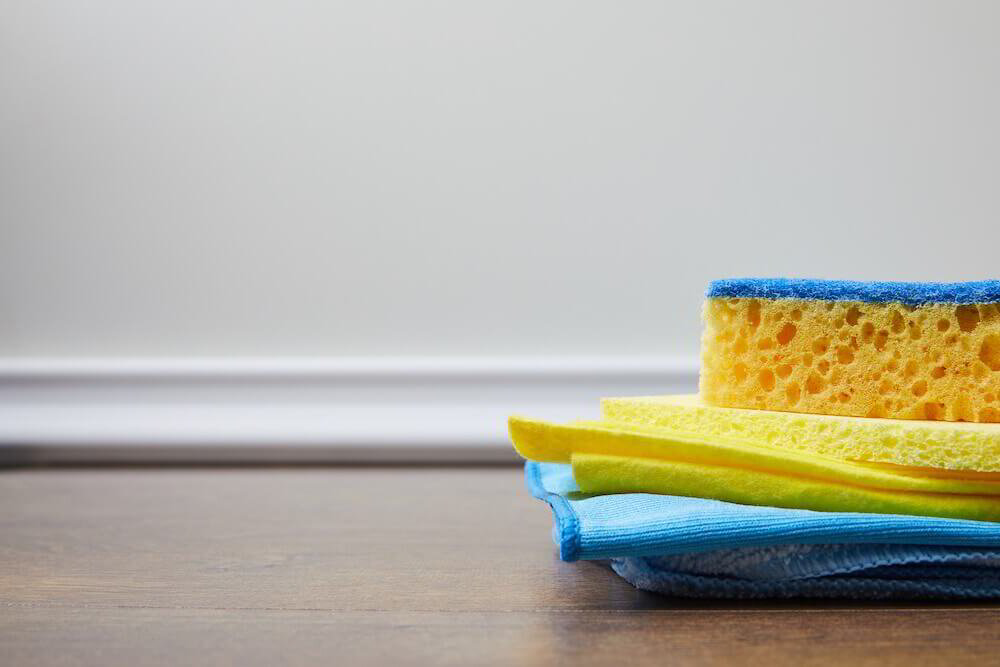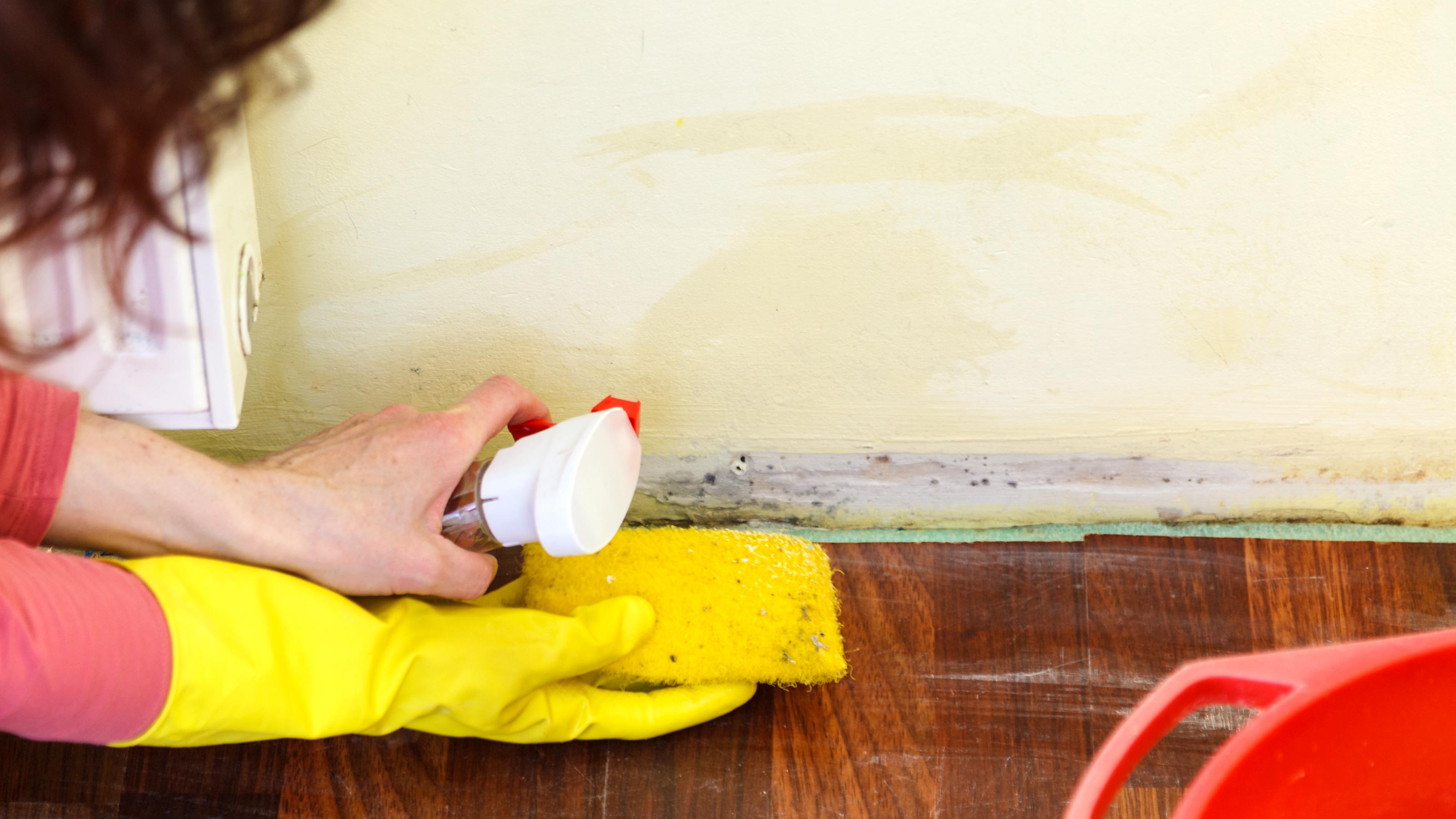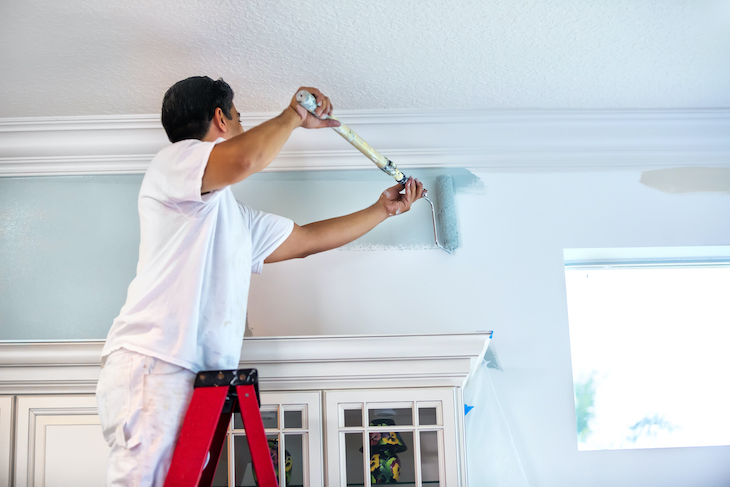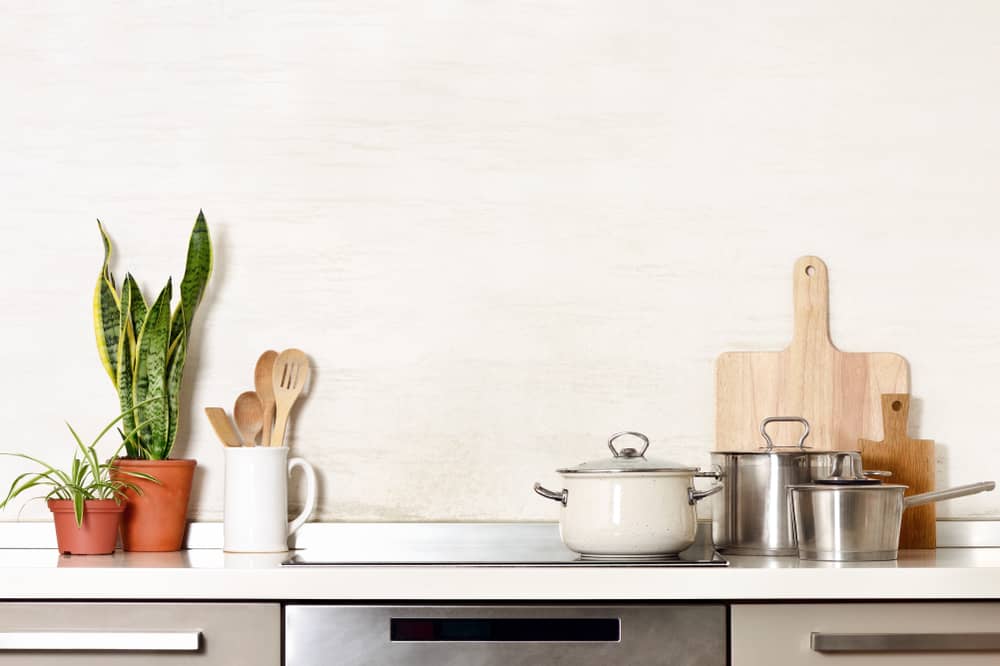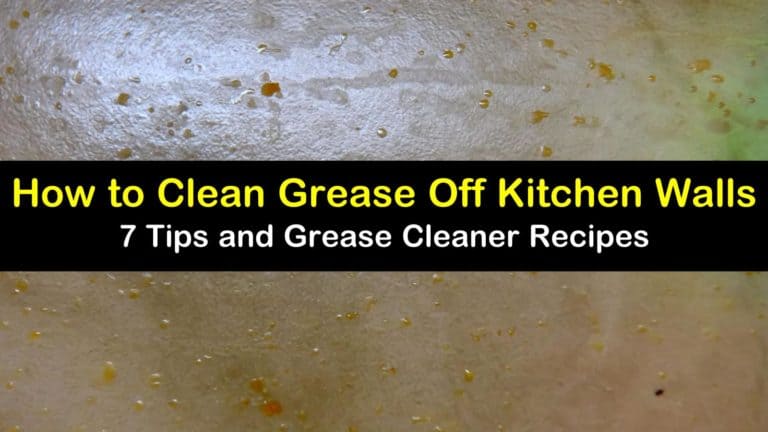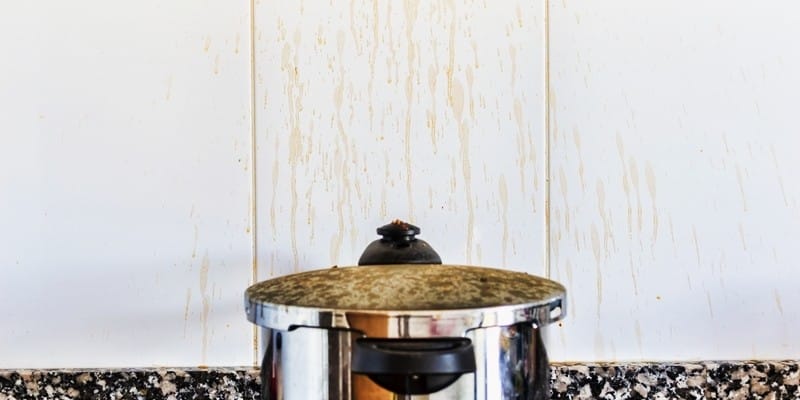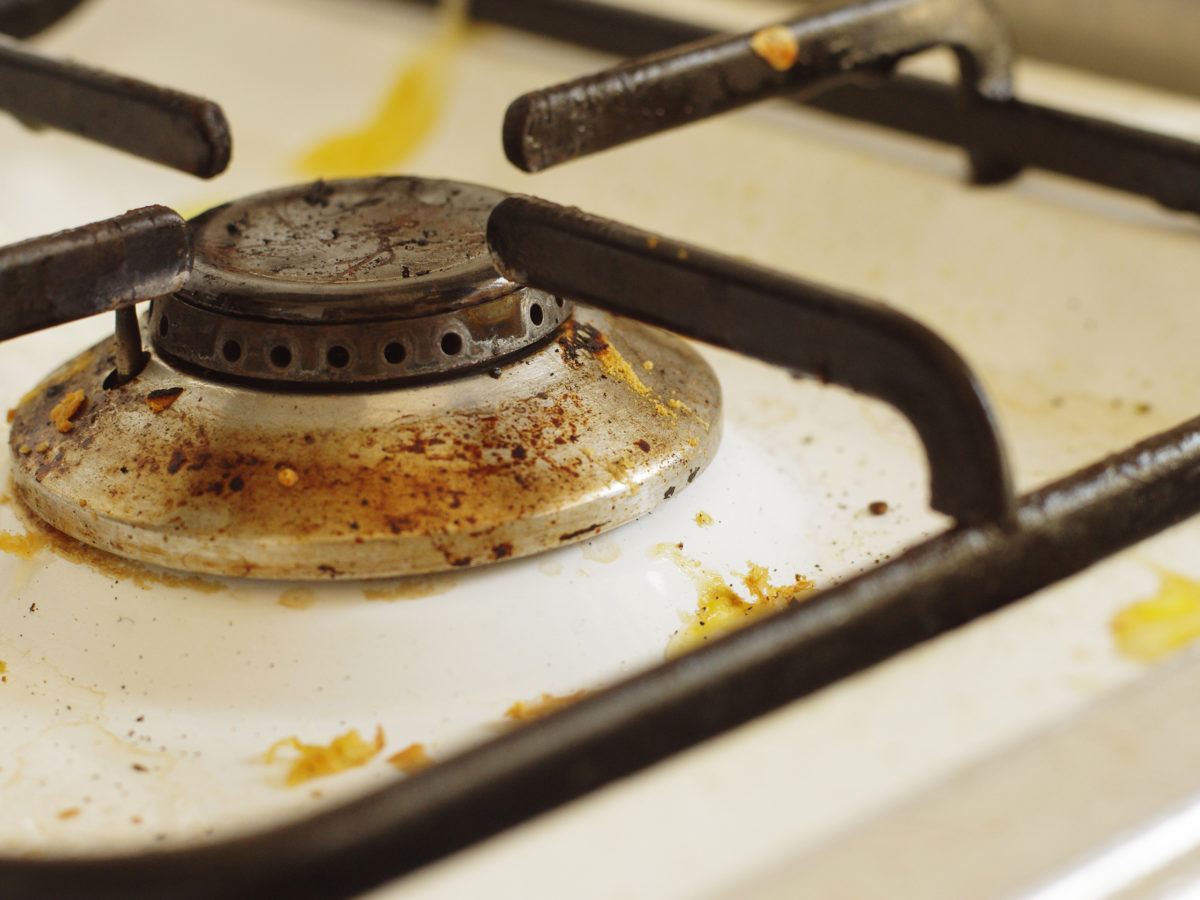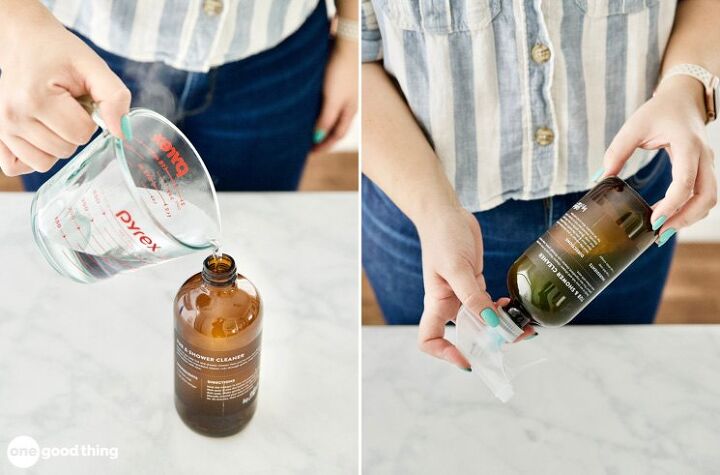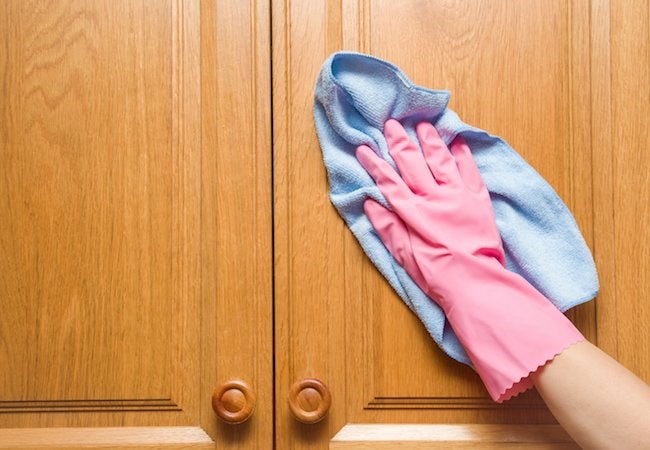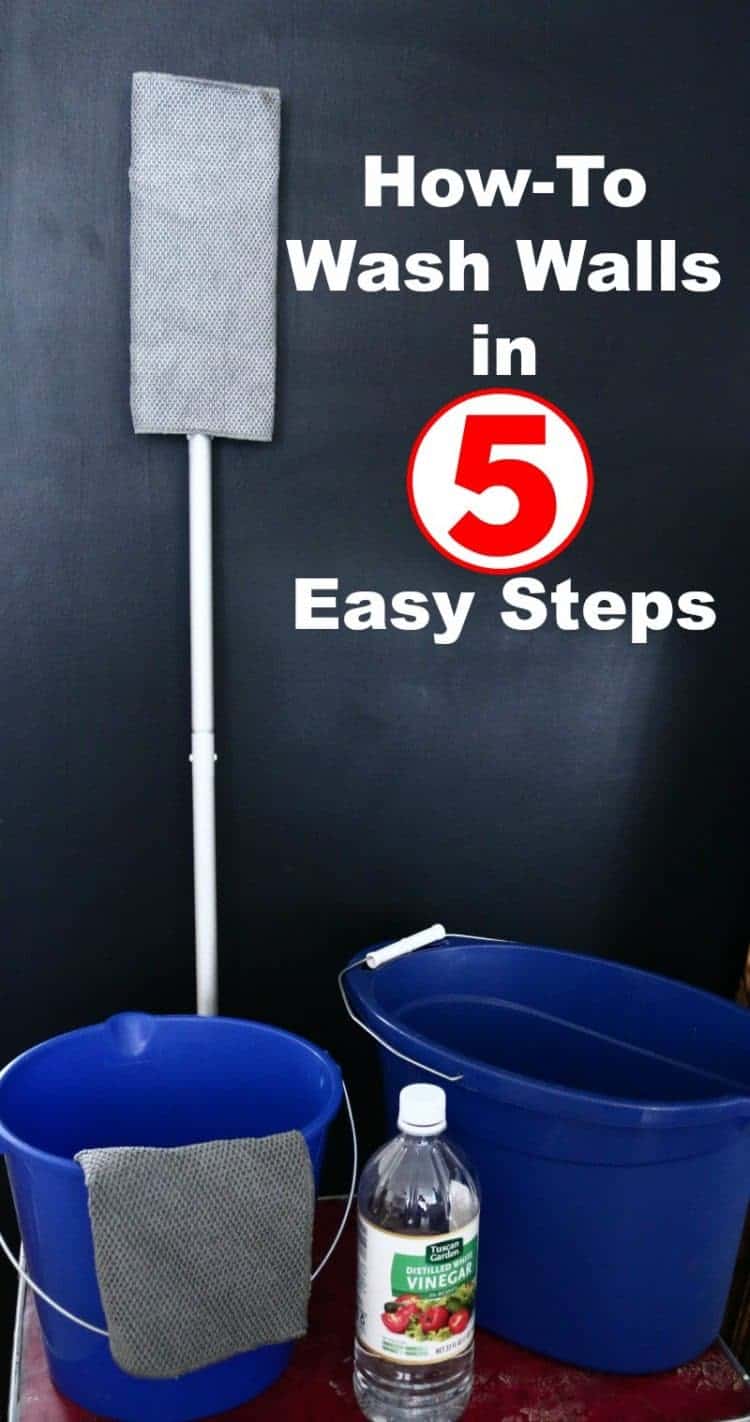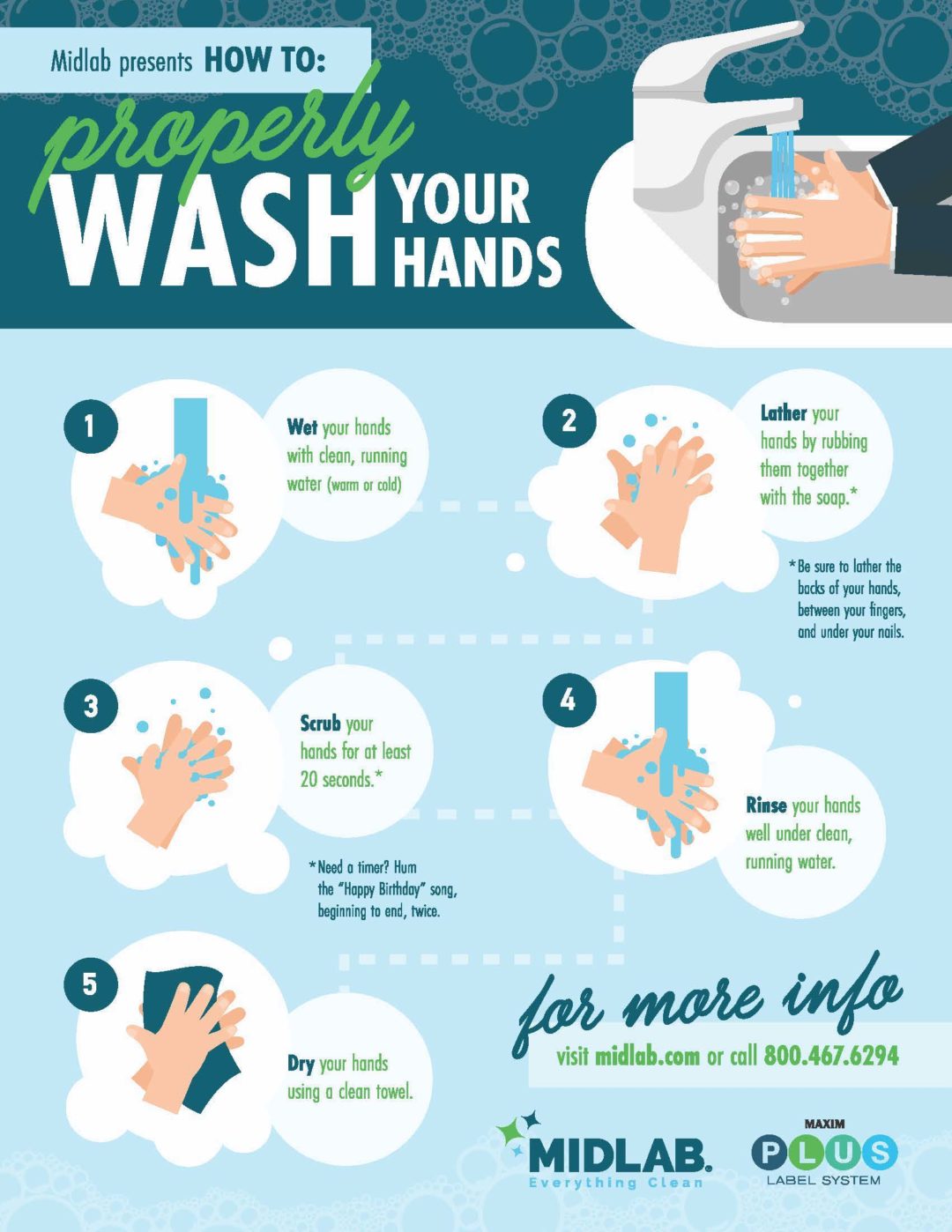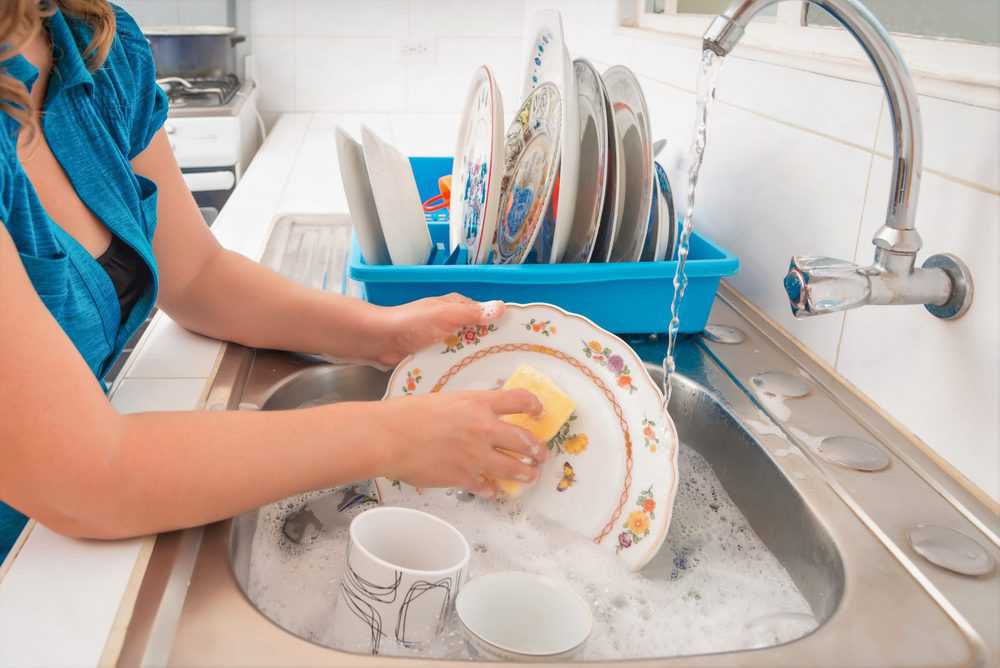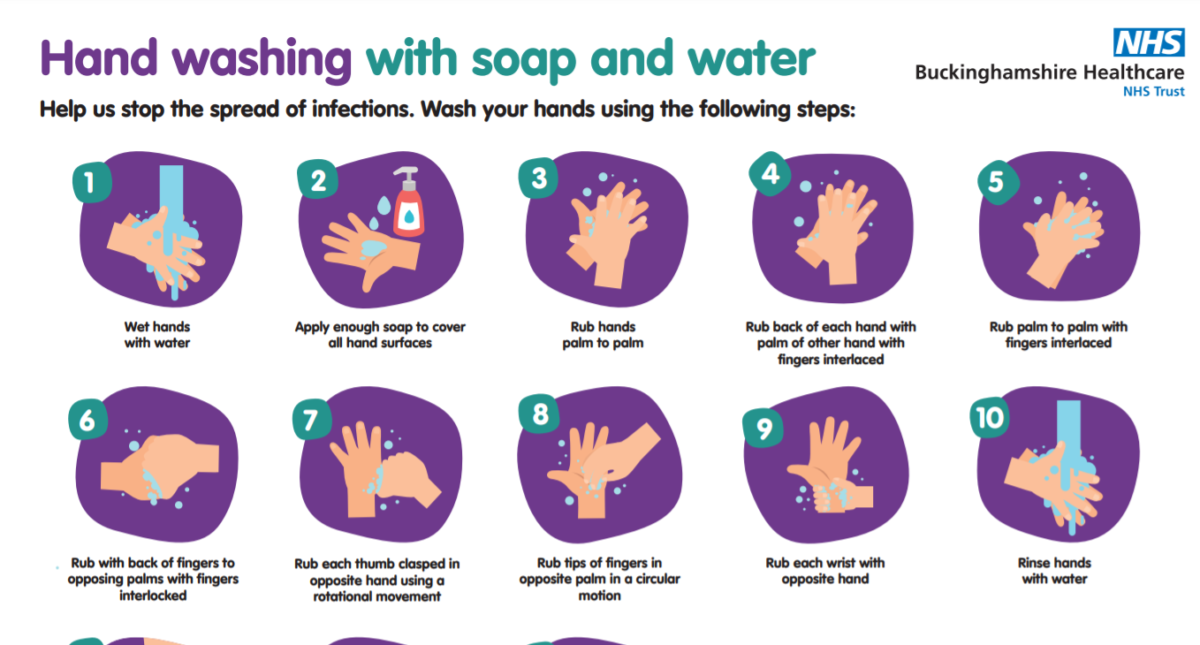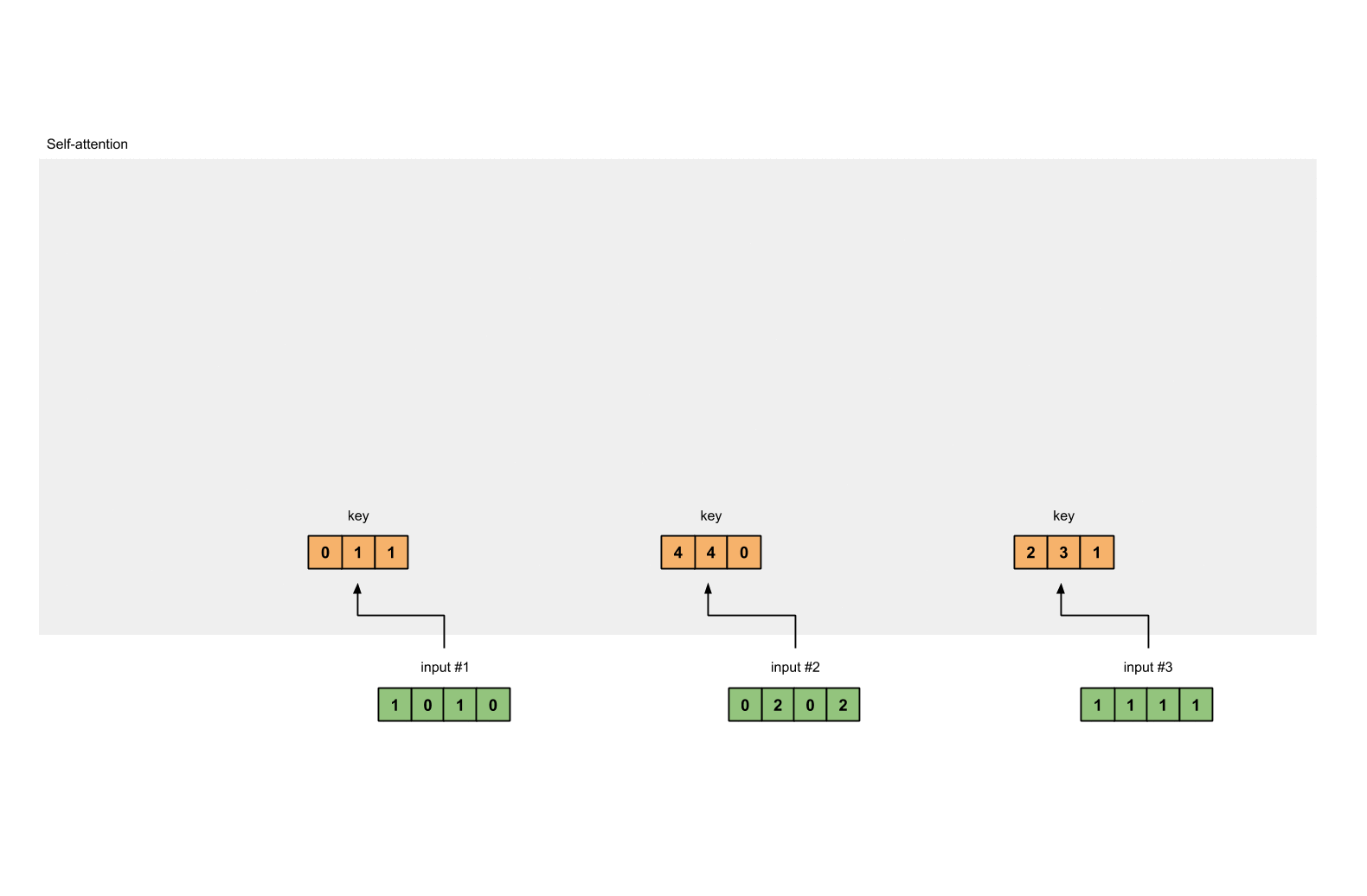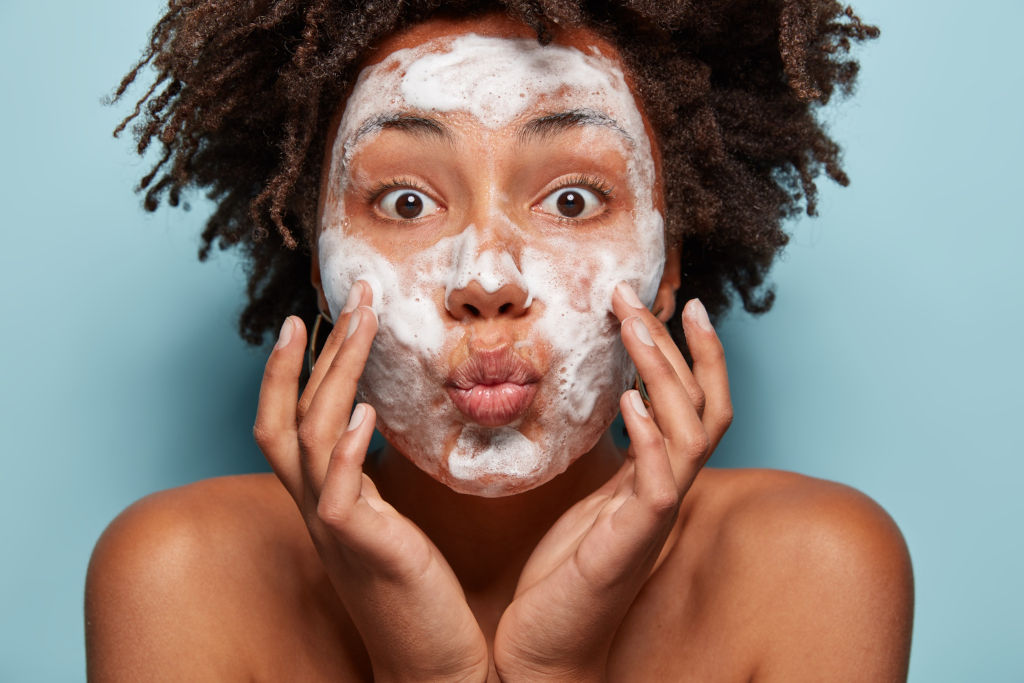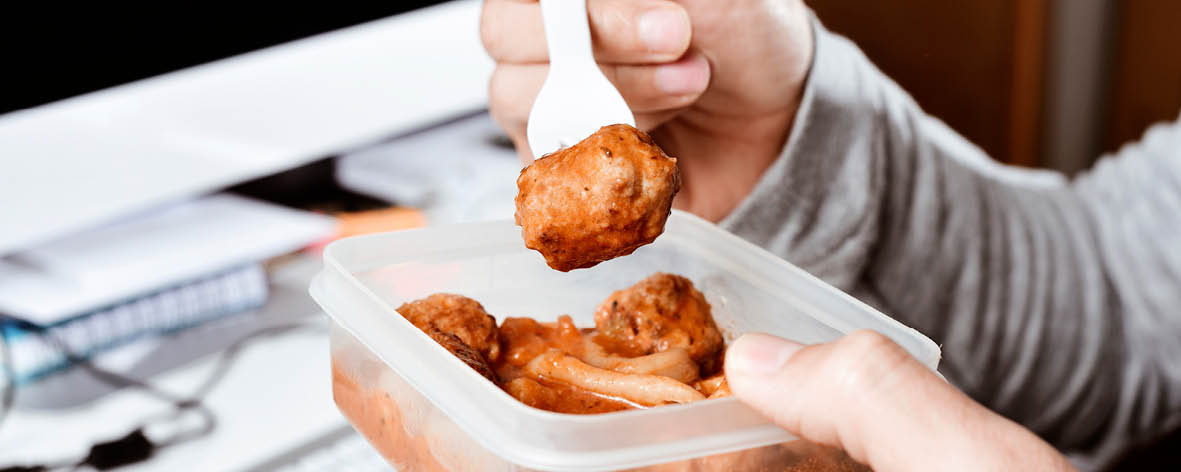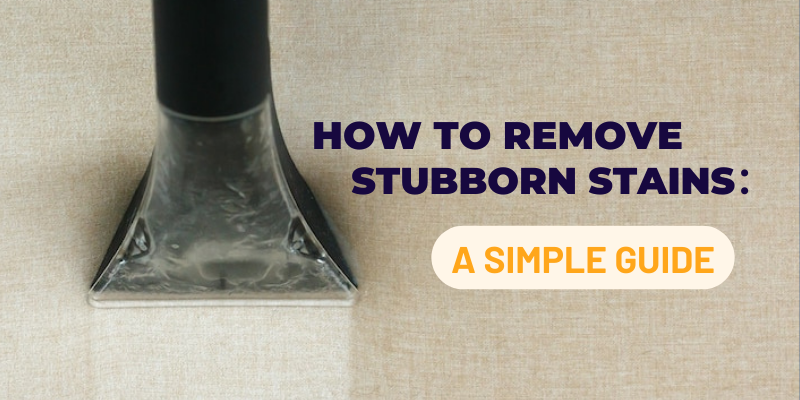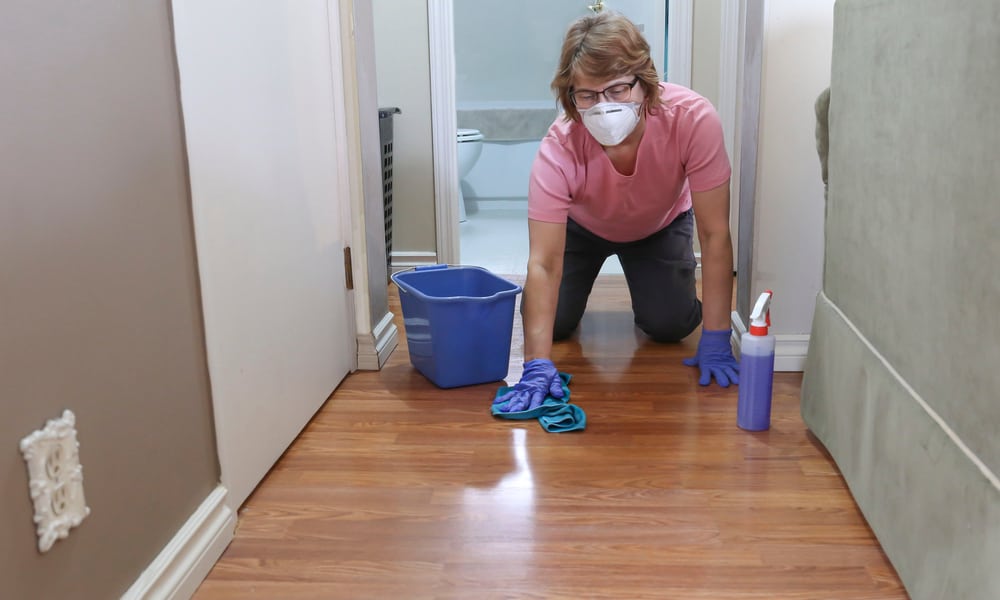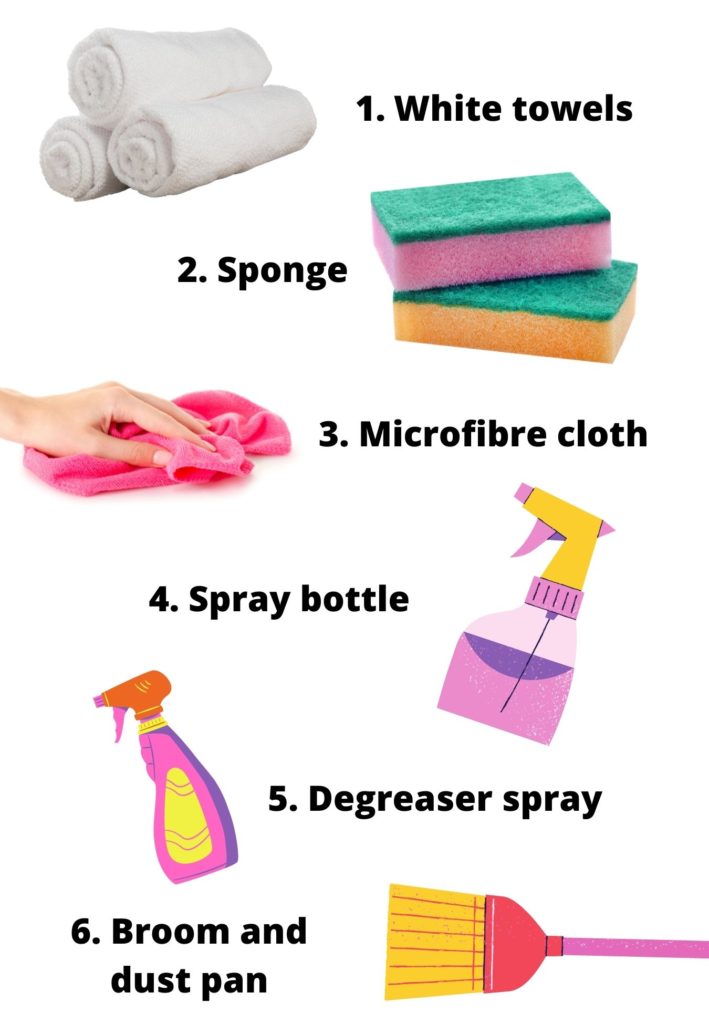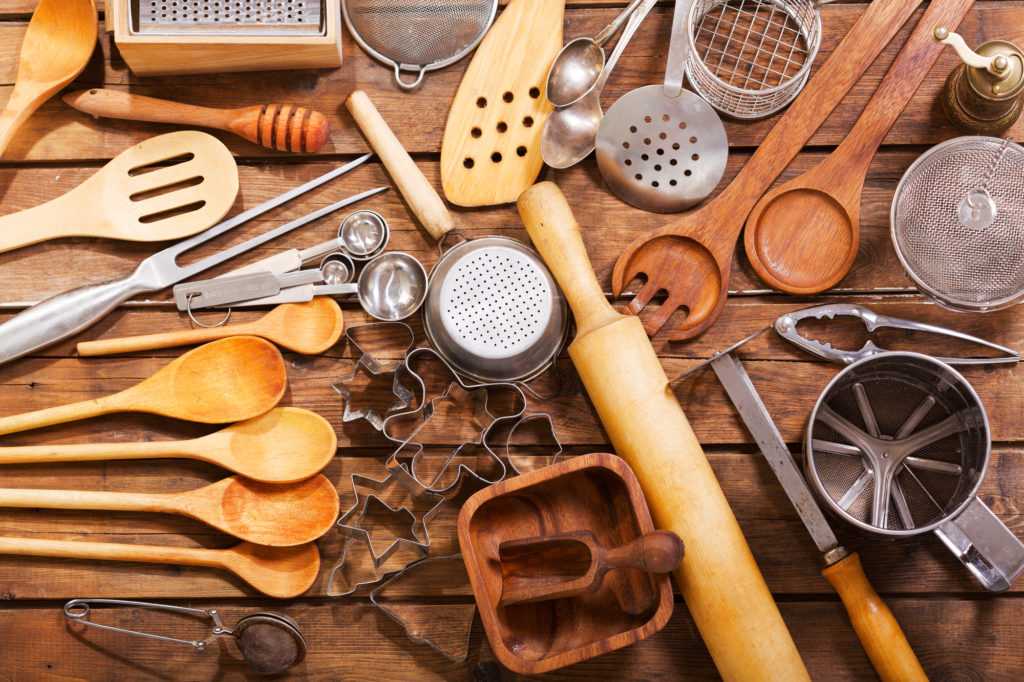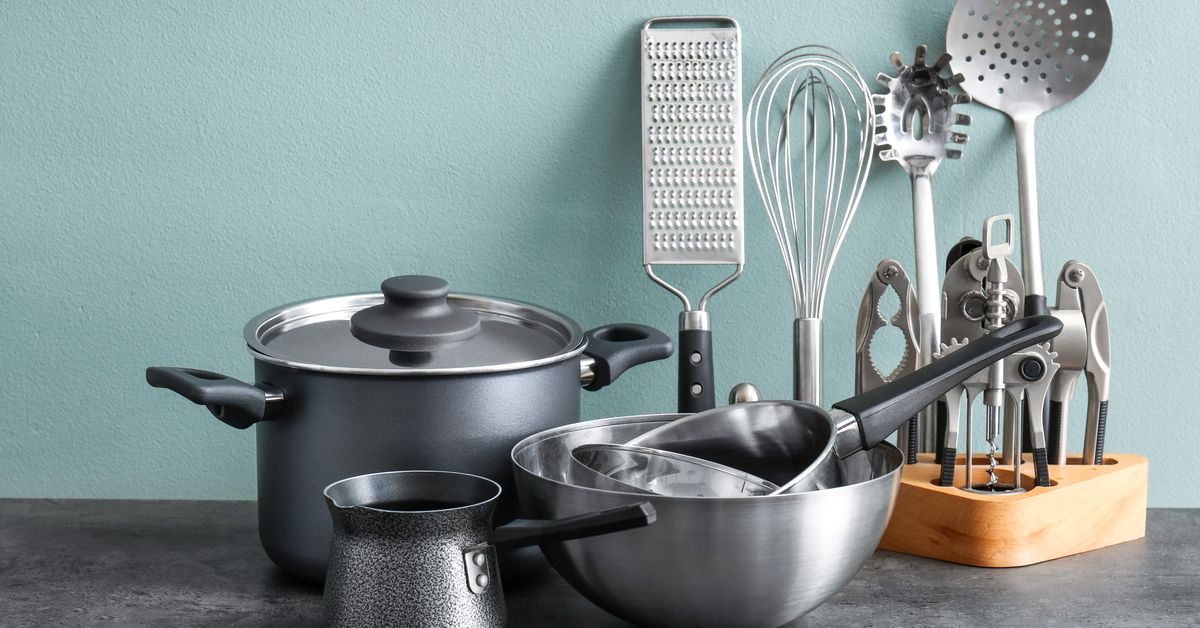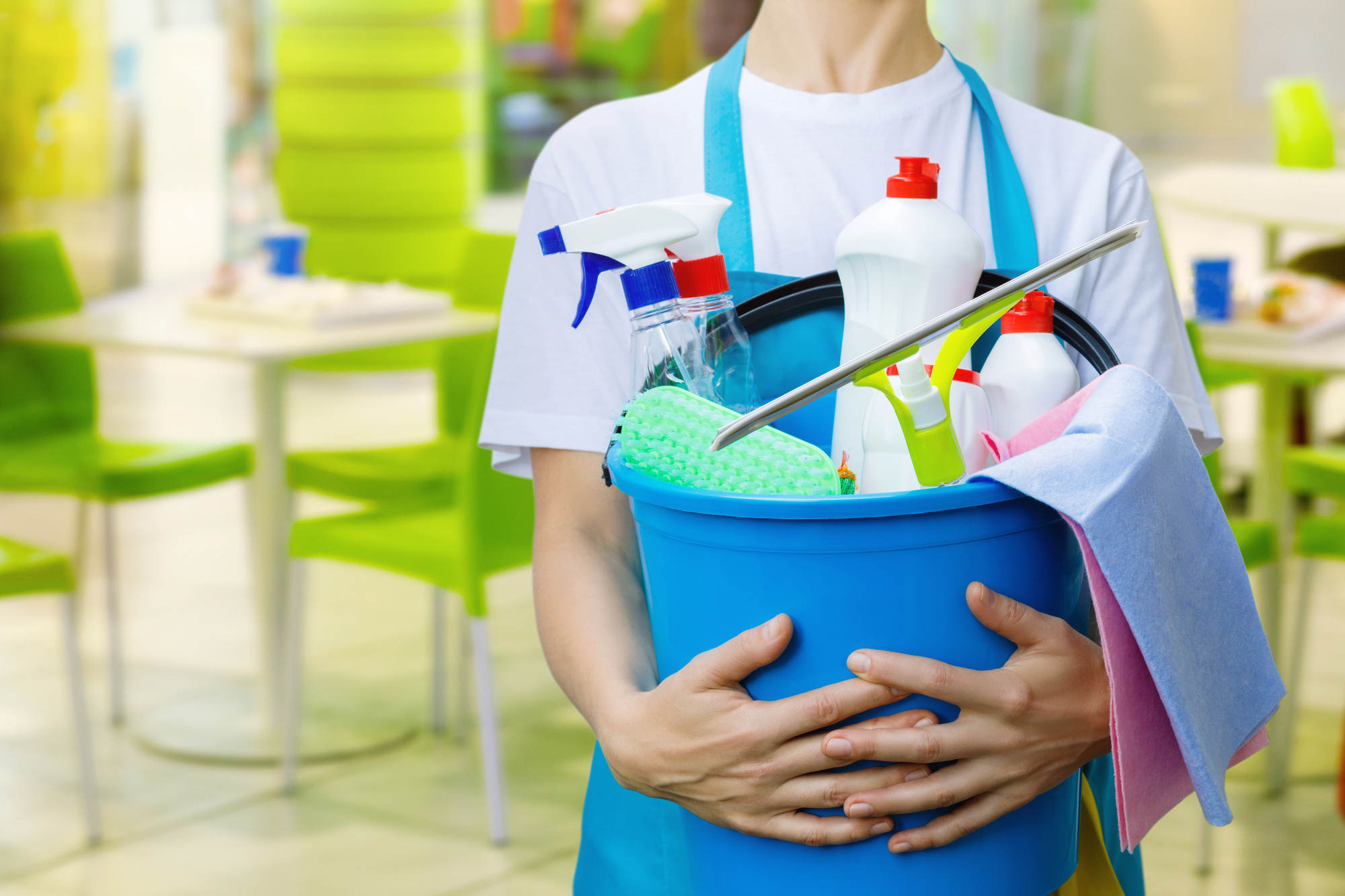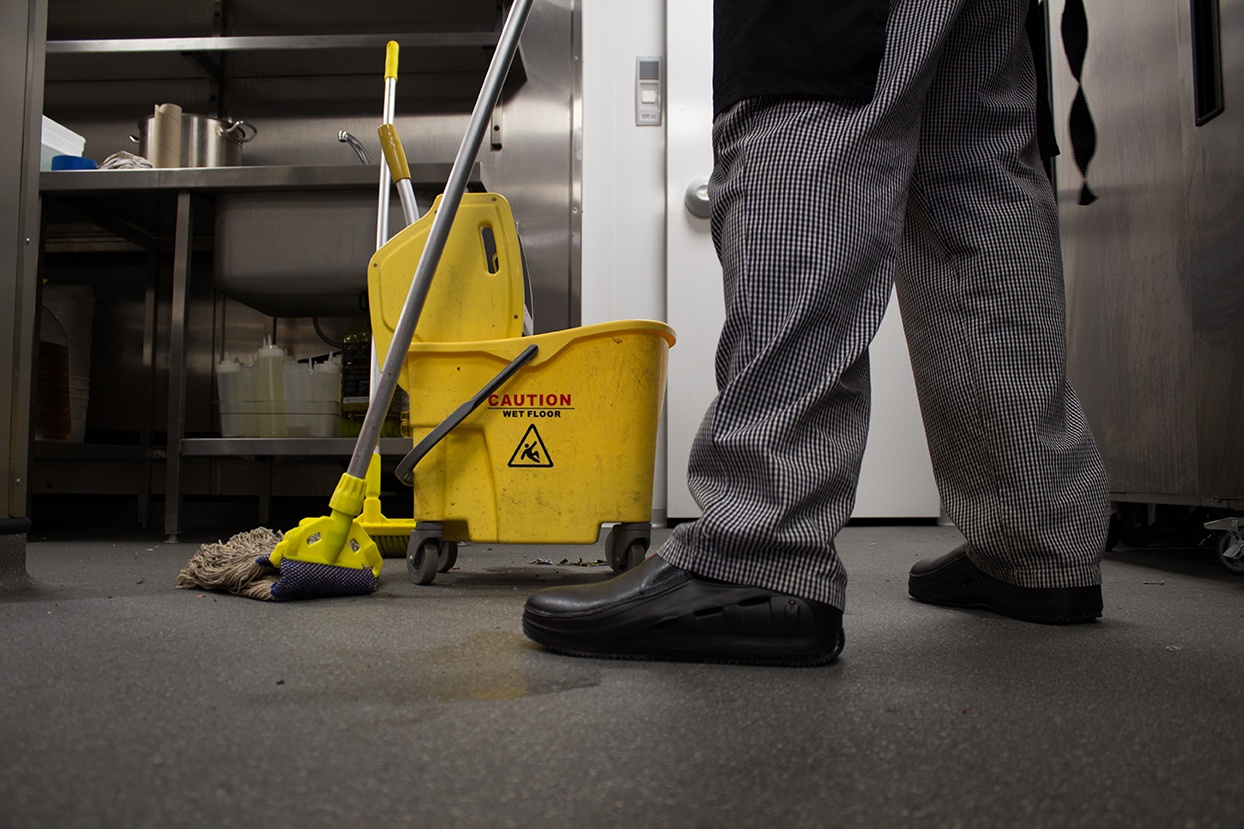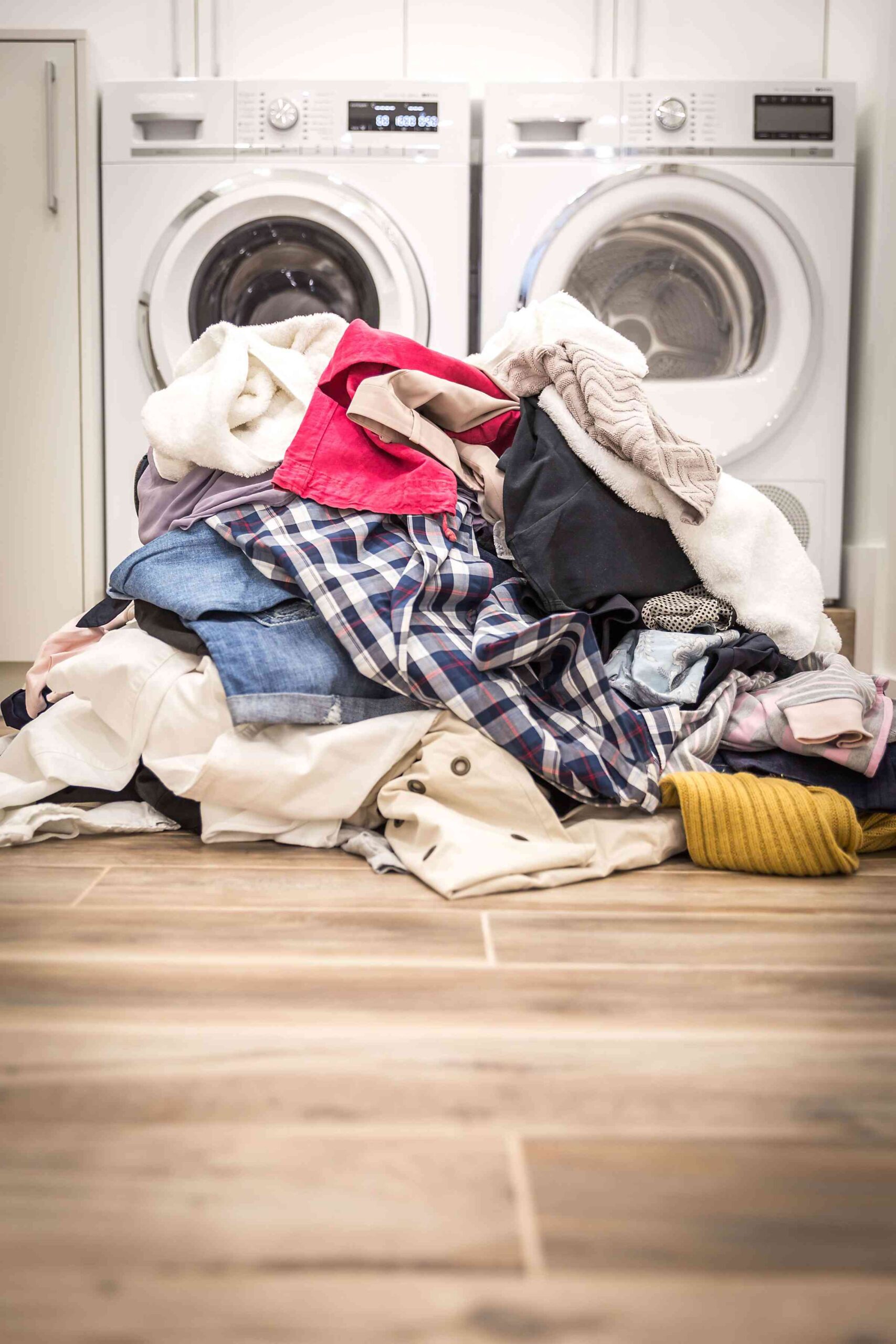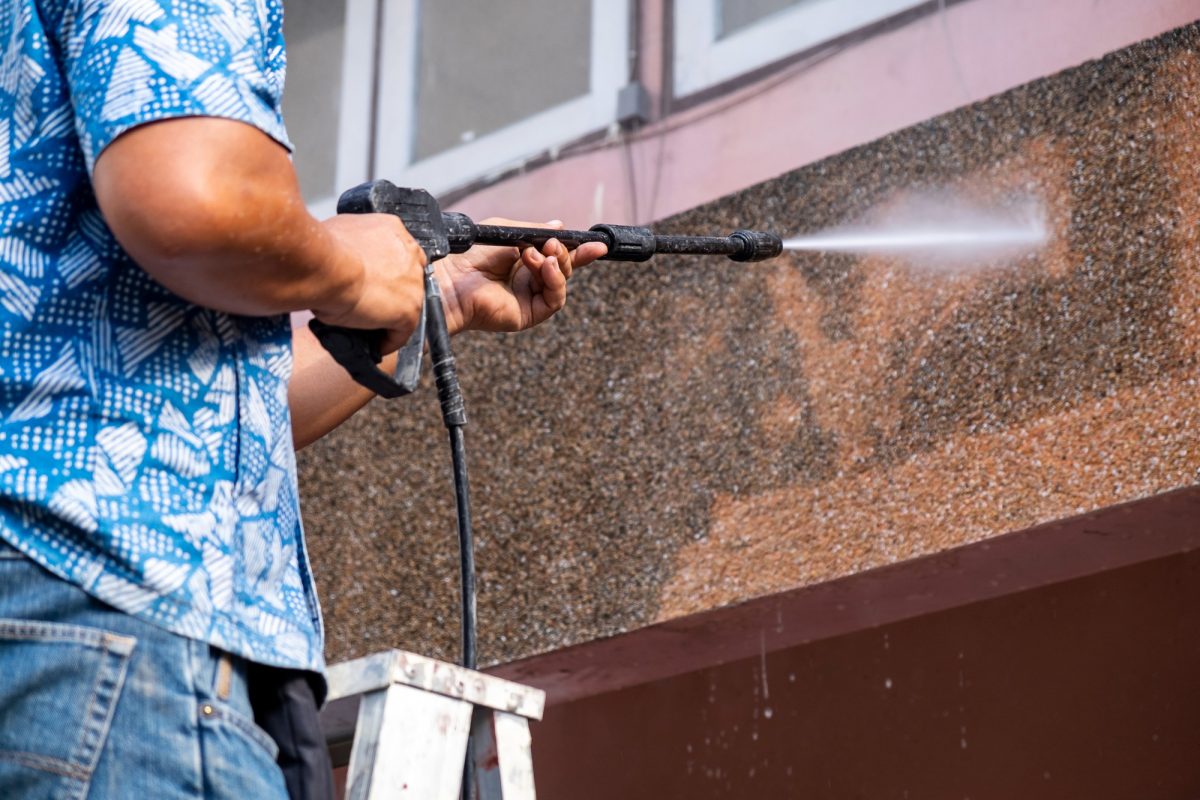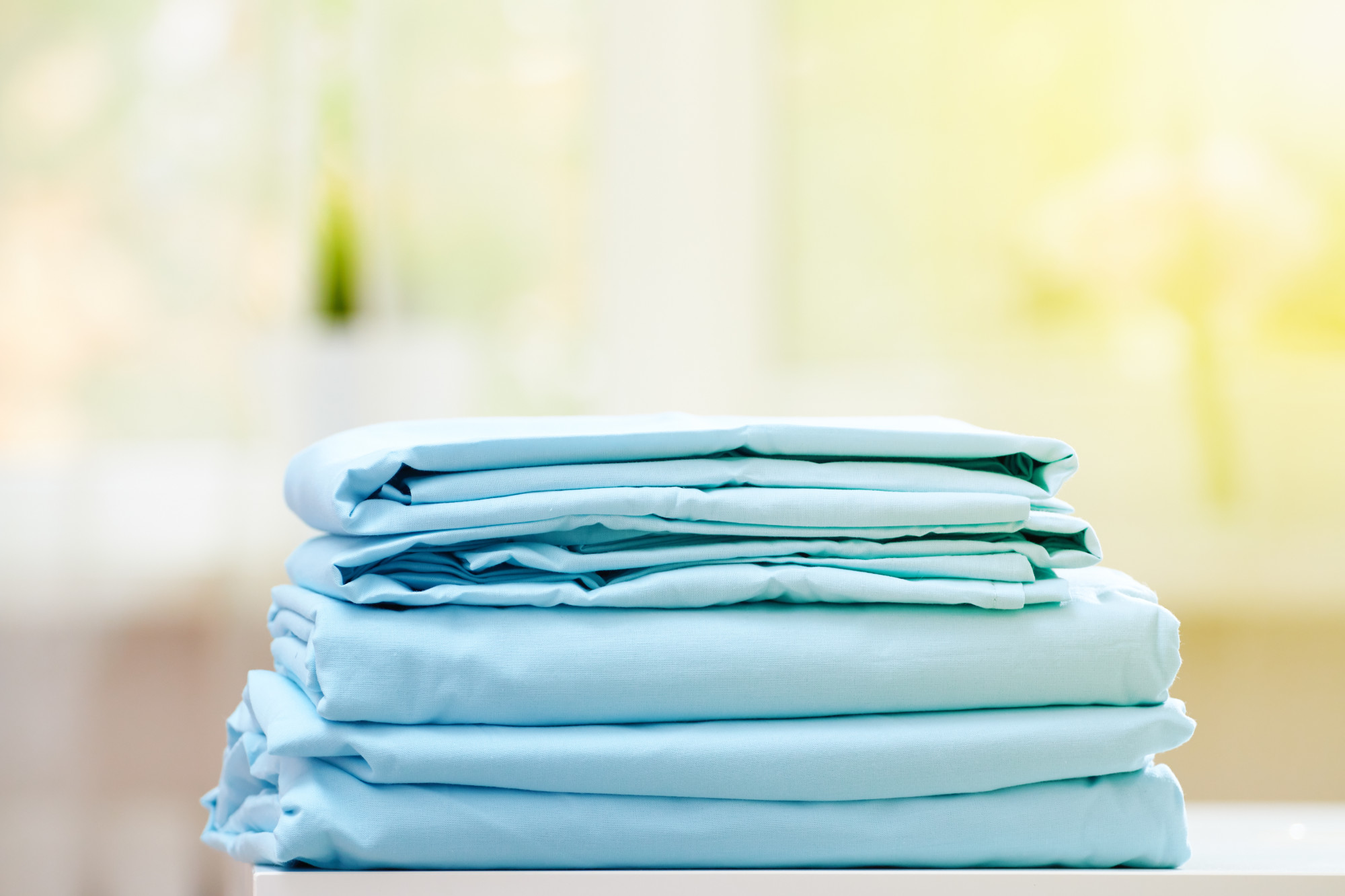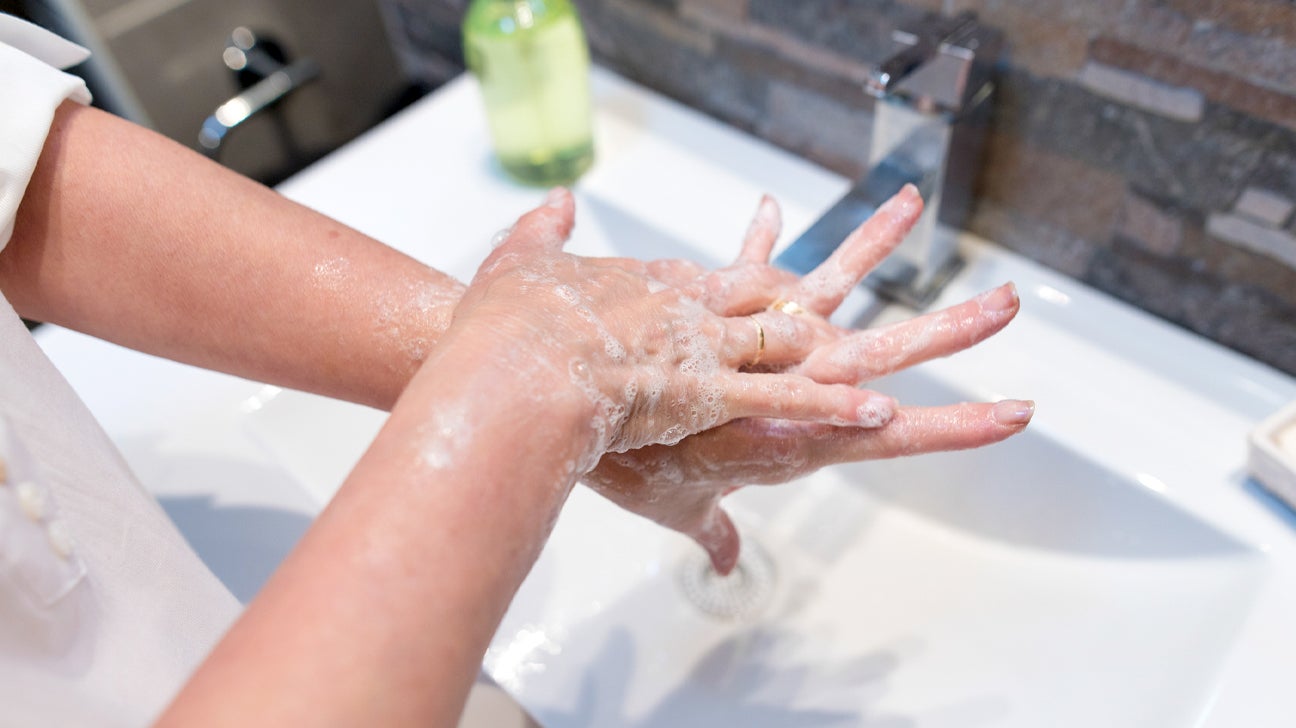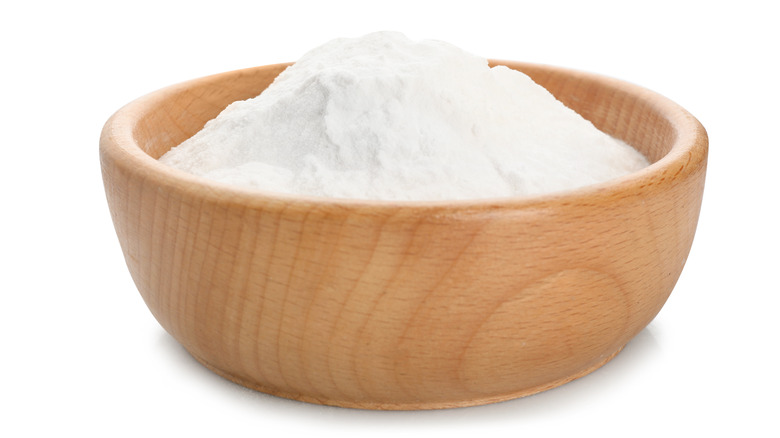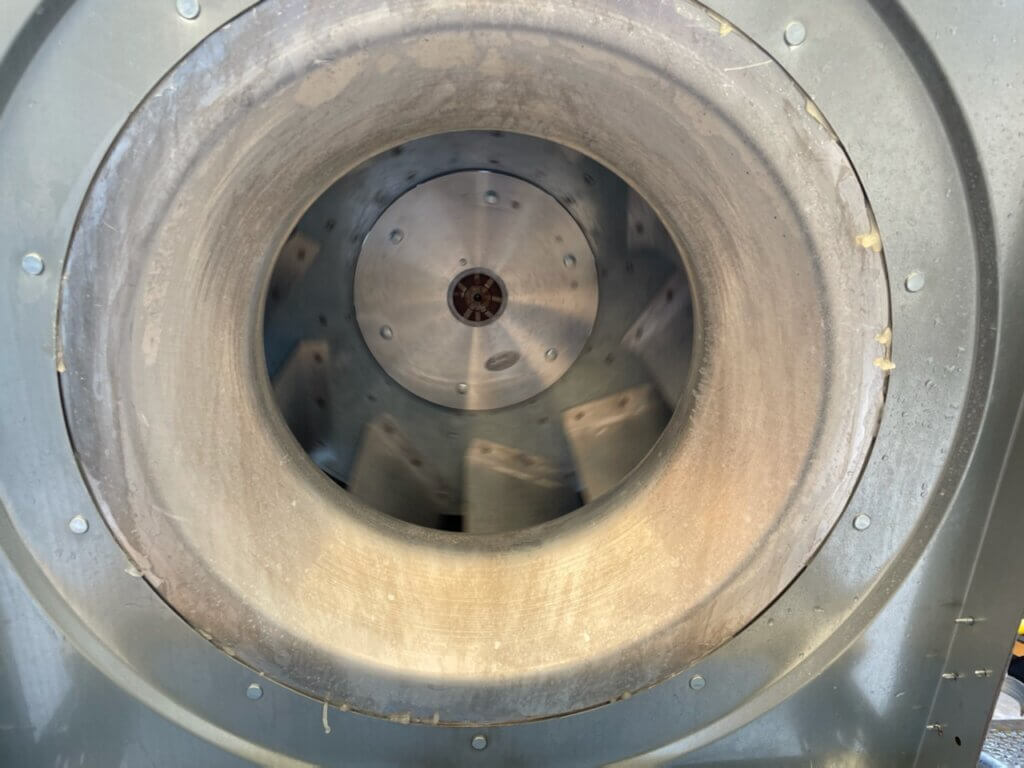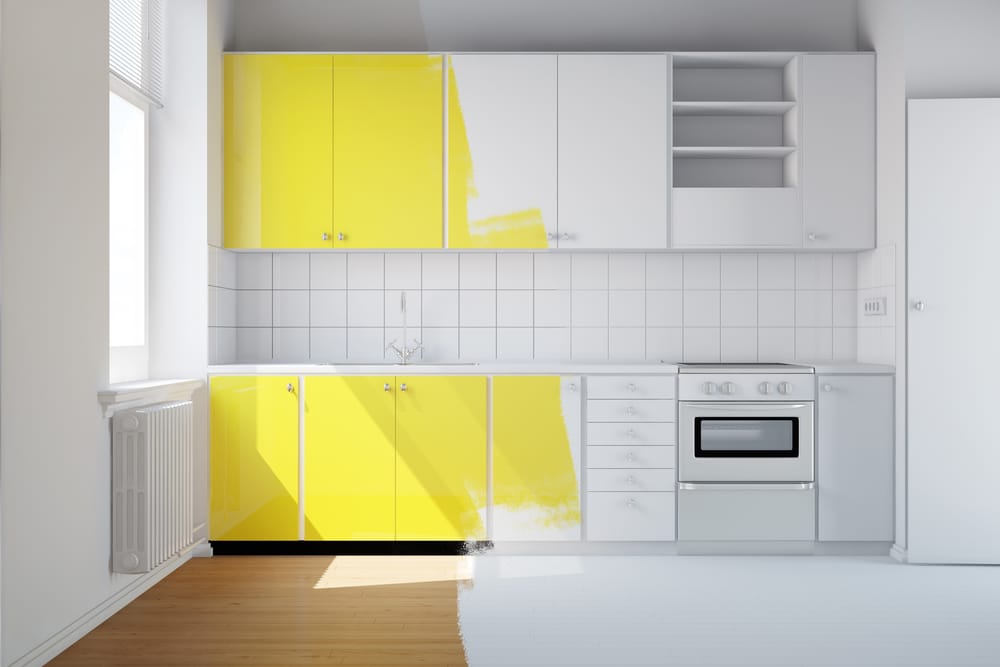Keeping your kitchen walls clean not only makes for a more hygienic cooking environment, but it also helps to maintain the appearance and longevity of your walls. With all the cooking, spills, and splatters that happen in the kitchen, it's important to know the best way to wash your kitchen walls. So, whether you have painted, tiled, or wallpapered walls, this ultimate guide will teach you how to effectively clean them.1. How to Clean Kitchen Walls: The Ultimate Guide
Painted kitchen walls are prone to getting dirty and greasy, especially around cooking areas. But harsh chemicals and scrubbing can damage the paint and leave unsightly streaks. To avoid this, start by dusting the walls with a microfiber cloth. Then, mix a solution of warm water and mild dish soap, and gently wipe the walls using a soft sponge. Rinse with a clean damp cloth and dry with a towel.2. The Best Way to Wash Kitchen Walls Without Damaging Paint
Grease can be a tough stain to remove from kitchen walls, especially if it has been sitting for a while. To effectively clean grease off your walls, make a paste using baking soda and water. Apply it to the greasy spots and let it sit for a few minutes before scrubbing with a damp sponge. The baking soda will act as a gentle abrasive and help to lift the grease, leaving your walls clean and shiny.3. Tips for Cleaning Grease off Kitchen Walls
If you prefer to use natural cleaning agents, a mixture of equal parts vinegar and water makes an excellent cleaner for kitchen walls. Vinegar is a mild acid that helps to cut through grease and grime, leaving your walls sparkling clean. You can also add a few drops of essential oils to the mixture for a pleasant scent. Just be sure to test the solution on a small, inconspicuous area first to ensure it doesn't damage your walls.4. The Most Effective Homemade Cleaner for Kitchen Walls
Washing kitchen walls may seem like a daunting task, but it's actually quite simple. Here's a step-by-step guide to help you get the job done easily and efficiently: Step 1: Remove any pictures, shelves, or decorations from the walls to ensure they don't get in the way while cleaning. Step 2: Dust the walls using a microfiber cloth or a duster to remove any loose dirt and debris. Step 3: Mix a cleaning solution using warm water and a mild detergent or your preferred cleaner. Step 4: Dip a sponge or cloth into the cleaning solution and wring out any excess liquid. Step 5: Starting from the top of the wall, gently wipe the walls in a circular motion, paying extra attention to any stains or greasy spots. Step 6: Rinse the sponge or cloth frequently and continue wiping the walls until they are clean. Step 7: Rinse the walls with a clean damp cloth and dry with a towel. Step 8: Replace any decorations or pictures and admire your sparkling clean kitchen walls!5. Step-by-Step Guide: How to Wash Kitchen Walls
While washing kitchen walls may seem like a simple task, there are a few dos and don'ts to keep in mind to ensure you don't damage your walls: Do: Use a gentle cleaning solution and a soft sponge or cloth to avoid damaging the paint or wallpaper. Do: Test any new cleaning solutions on a small, inconspicuous area first to make sure they don't cause any damage. Do: Rinse the walls with clean water after washing to remove any residue. Don't: Use harsh chemicals, such as bleach or ammonia, as they can damage the walls and pose a health risk. Don't: Scrub too hard, as this can damage the paint or wallpaper and leave unsightly streaks.6. The Dos and Don'ts of Washing Kitchen Walls
Despite our best efforts, sometimes stains can be stubborn and refuse to come off. But don't worry, there are a few tricks you can try to remove even the toughest stains from your kitchen walls: For grease stains: Use a paste of baking soda and water to gently scrub the area. Alternatively, you can also sprinkle baking soda on the stain, let it sit for a few minutes, and then wipe it off with a damp cloth. For crayon or marker stains: Rubbing alcohol is an effective solution for removing these types of stains. Simply apply a small amount onto a cotton ball or cloth and gently rub the stain until it disappears. For water stains: Mix equal parts vinegar and water and spray it onto the water stain. Let it sit for a few minutes before wiping it off with a clean cloth.7. How to Remove Stubborn Stains from Kitchen Walls
Having the right tools can make all the difference when it comes to cleaning your kitchen walls. Here are a few essentials to keep in your cleaning arsenal: Microfiber cloths: These are great for dusting and wiping down walls without leaving any lint or streaks. Soft sponges or cloths: These are gentle enough to avoid damaging your walls while still being effective at removing dirt and grime. Mild detergent or cleaner: Look for products that are specifically designed for washing walls and are gentle on surfaces. Scrub brush: For tougher stains, a scrub brush can come in handy to gently scrub away the dirt and grime.8. The Best Tools for Cleaning Kitchen Walls
The frequency of washing your kitchen walls will depend on how much cooking and activity happens in your kitchen. If you cook regularly and have a lot of splatters and spills, it's recommended to clean your walls at least once a month. However, if your kitchen doesn't see much action, you can get away with washing them every few months.9. How Often Should You Wash Your Kitchen Walls?
Regularly washing your kitchen walls not only keeps them looking clean and fresh, but it also has several other benefits: Prevents bacteria and germs: The kitchen is a breeding ground for bacteria and germs, but regularly washing your walls can help to keep them at bay. Improves indoor air quality: Grease and dirt build-up on walls can contribute to poor indoor air quality. Cleaning your walls regularly can help to improve the air you and your family breathe. Protects your walls: Dirt and grime can damage your walls over time, so keeping them clean can help to maintain their appearance and longevity. In conclusion, knowing the best way to wash your kitchen walls not only makes the task easier, but it also helps to maintain a clean and healthy cooking environment. With these tips and tricks, you can keep your walls looking spotless and shiny without damaging them in the process. So, roll up your sleeves and get ready to give your kitchen walls the attention they deserve!10. The Benefits of Regularly Washing Your Kitchen Walls
The Best Way to Wash Kitchen Walls for a Fresh and Clean Home
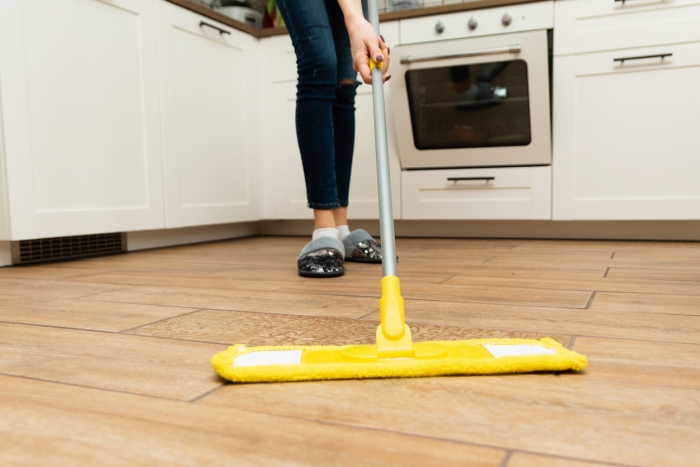
Introduction to House Design and Maintenance
 When it comes to designing and maintaining a house, the kitchen is often considered the heart of the home. It's where we gather to cook, eat, and spend quality time with our loved ones. However, with all the cooking and food preparation that happens in the kitchen, it's no surprise that the walls can get dirty and greasy over time. Not only can this affect the overall aesthetic of your home, but it can also be unhygienic. That's why it's essential to know the best way to wash kitchen walls to keep your home looking fresh and clean.
When it comes to designing and maintaining a house, the kitchen is often considered the heart of the home. It's where we gather to cook, eat, and spend quality time with our loved ones. However, with all the cooking and food preparation that happens in the kitchen, it's no surprise that the walls can get dirty and greasy over time. Not only can this affect the overall aesthetic of your home, but it can also be unhygienic. That's why it's essential to know the best way to wash kitchen walls to keep your home looking fresh and clean.
Why Washing Kitchen Walls is Important
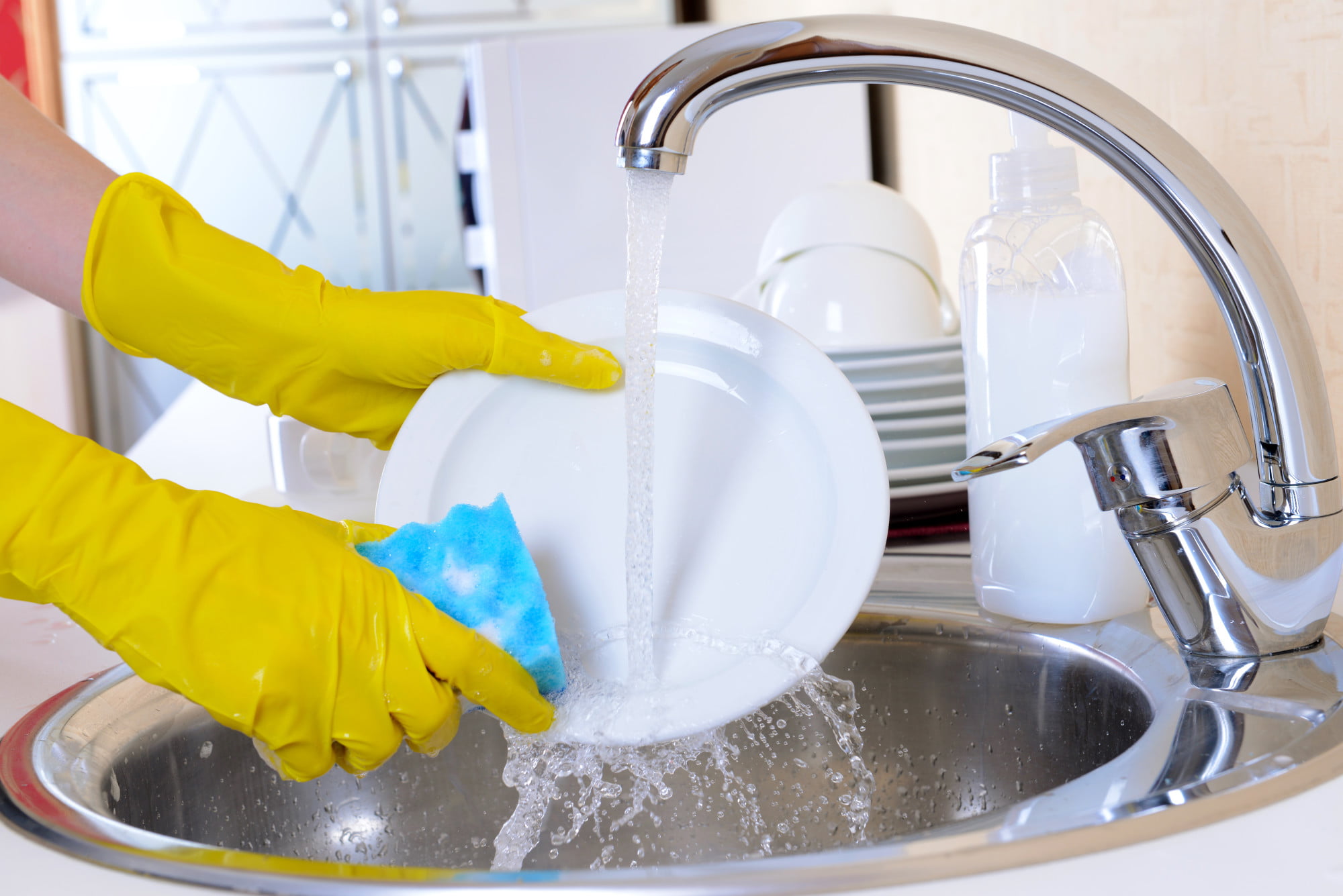 The kitchen is a high-traffic area that is prone to spills, stains, and splatters. Grease and cooking fumes can also accumulate on the walls, making them look dull and dirty. Not only can this affect the appearance of your kitchen, but it can also lead to the growth of bacteria and mold, which can be harmful to your health. Regularly washing your kitchen walls not only keeps them looking clean and inviting, but it also promotes a healthier living environment for you and your family.
The kitchen is a high-traffic area that is prone to spills, stains, and splatters. Grease and cooking fumes can also accumulate on the walls, making them look dull and dirty. Not only can this affect the appearance of your kitchen, but it can also lead to the growth of bacteria and mold, which can be harmful to your health. Regularly washing your kitchen walls not only keeps them looking clean and inviting, but it also promotes a healthier living environment for you and your family.
The Best Way to Wash Kitchen Walls
 Now that we understand the importance of washing our kitchen walls, let's discuss the best way to do it. First, you'll need to gather some supplies, including a bucket, warm water, dish soap, a sponge, and a soft cloth. It's important to avoid using harsh chemicals or abrasive sponges, as they can damage the paint or wallpaper on your walls.
Start by filling the bucket with warm water and adding a few drops of dish soap. Dip the sponge into the soapy water and gently scrub the walls in a circular motion, paying extra attention to any stains or greasy spots. Rinse the sponge frequently to avoid spreading dirt and grime around. Once you've cleaned the entire wall, use a soft cloth to wipe away any excess water and soap. For tougher stains, you may need to use a specialized kitchen cleaner, but be sure to follow the instructions carefully.
Now that we understand the importance of washing our kitchen walls, let's discuss the best way to do it. First, you'll need to gather some supplies, including a bucket, warm water, dish soap, a sponge, and a soft cloth. It's important to avoid using harsh chemicals or abrasive sponges, as they can damage the paint or wallpaper on your walls.
Start by filling the bucket with warm water and adding a few drops of dish soap. Dip the sponge into the soapy water and gently scrub the walls in a circular motion, paying extra attention to any stains or greasy spots. Rinse the sponge frequently to avoid spreading dirt and grime around. Once you've cleaned the entire wall, use a soft cloth to wipe away any excess water and soap. For tougher stains, you may need to use a specialized kitchen cleaner, but be sure to follow the instructions carefully.
Preventative Measures to Keep Your Kitchen Walls Clean
 To prevent your kitchen walls from getting dirty and greasy in the first place, there are a few simple steps you can take. Consider installing a backsplash behind your stove and sink, as this will protect your walls from splatters and spills. You can also use a degreaser or vinegar and water solution to wipe down your walls after cooking to remove any residue and maintain their cleanliness. Additionally, regularly cleaning your kitchen cabinets, appliances, and countertops can help prevent buildup on your walls.
To prevent your kitchen walls from getting dirty and greasy in the first place, there are a few simple steps you can take. Consider installing a backsplash behind your stove and sink, as this will protect your walls from splatters and spills. You can also use a degreaser or vinegar and water solution to wipe down your walls after cooking to remove any residue and maintain their cleanliness. Additionally, regularly cleaning your kitchen cabinets, appliances, and countertops can help prevent buildup on your walls.
In Conclusion
 Keeping your kitchen walls clean is crucial for both the appearance and hygiene of your home. By following the simple steps outlined above, you can easily maintain a fresh and inviting kitchen that you and your family will love spending time in. Remember to be gentle and avoid harsh chemicals when cleaning your walls, and don't forget to take preventative measures to keep them looking their best. With these tips, you'll have a spotless and sparkling kitchen in no time.
Keeping your kitchen walls clean is crucial for both the appearance and hygiene of your home. By following the simple steps outlined above, you can easily maintain a fresh and inviting kitchen that you and your family will love spending time in. Remember to be gentle and avoid harsh chemicals when cleaning your walls, and don't forget to take preventative measures to keep them looking their best. With these tips, you'll have a spotless and sparkling kitchen in no time.



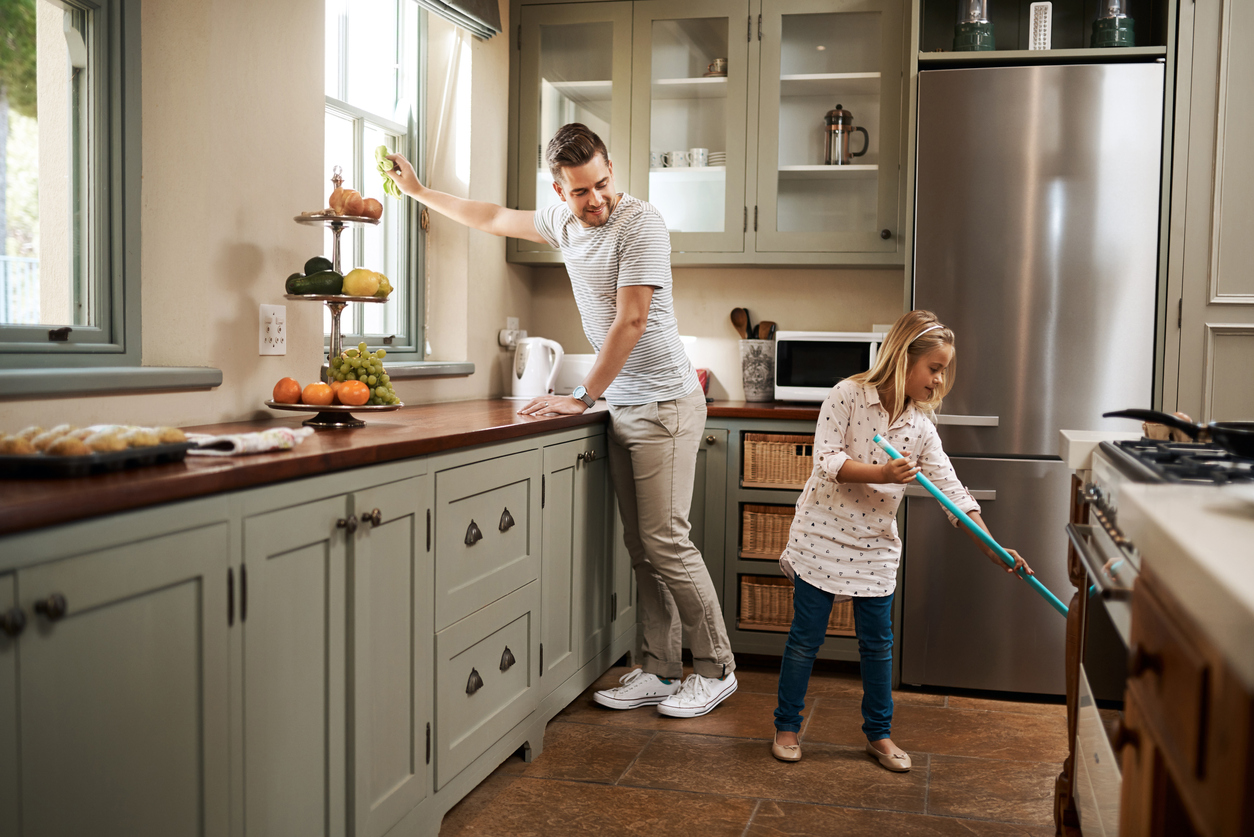
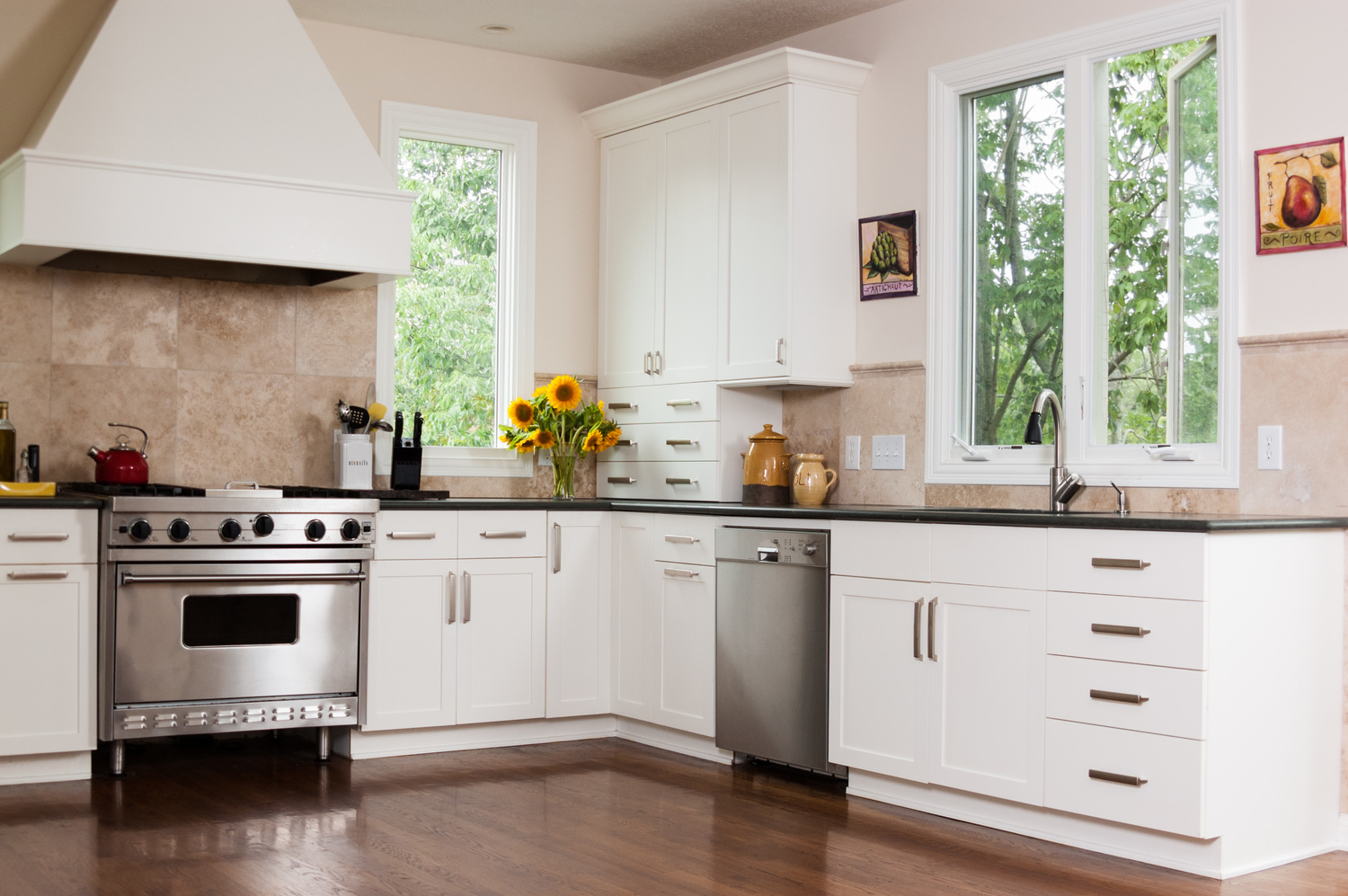
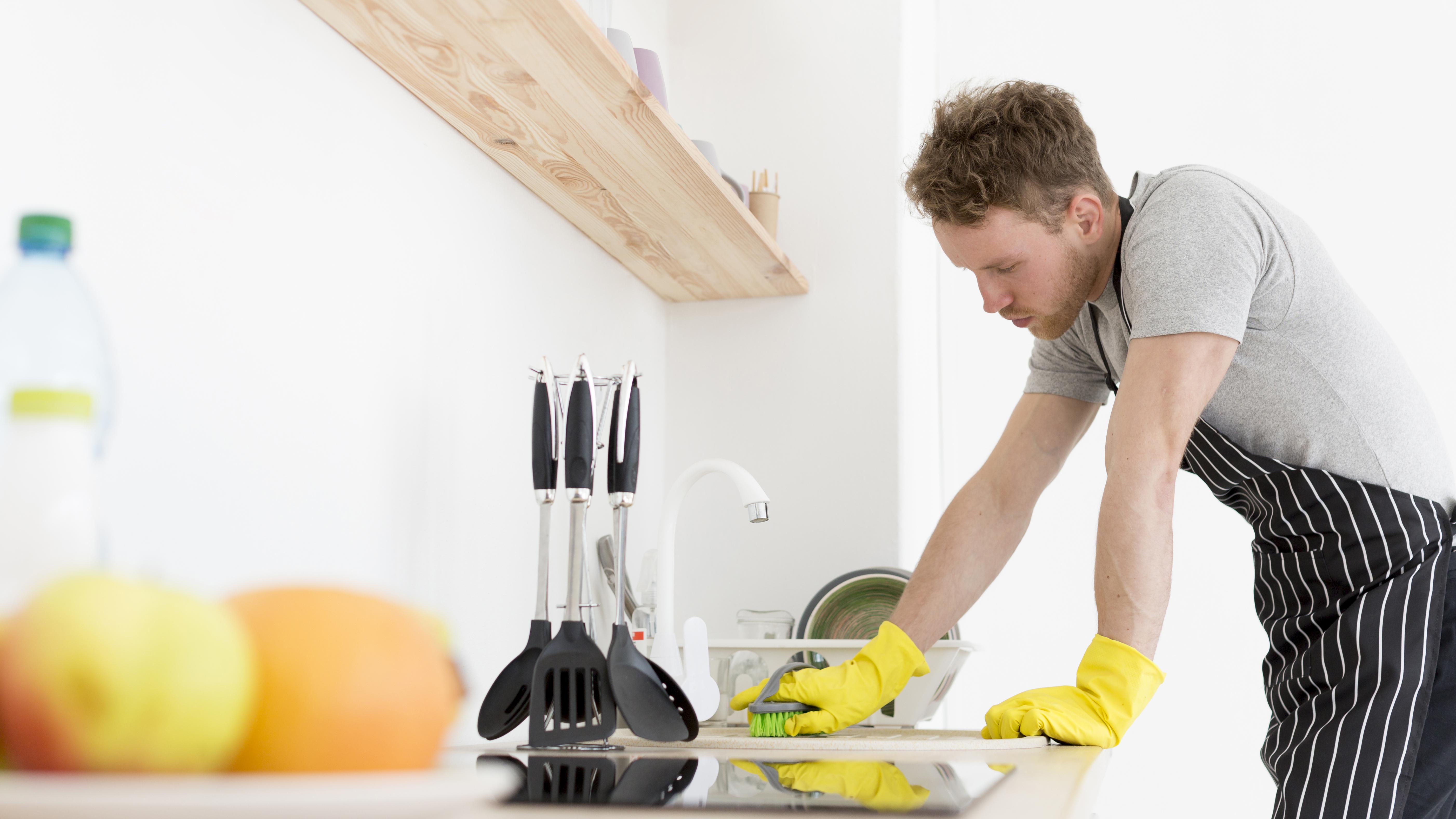

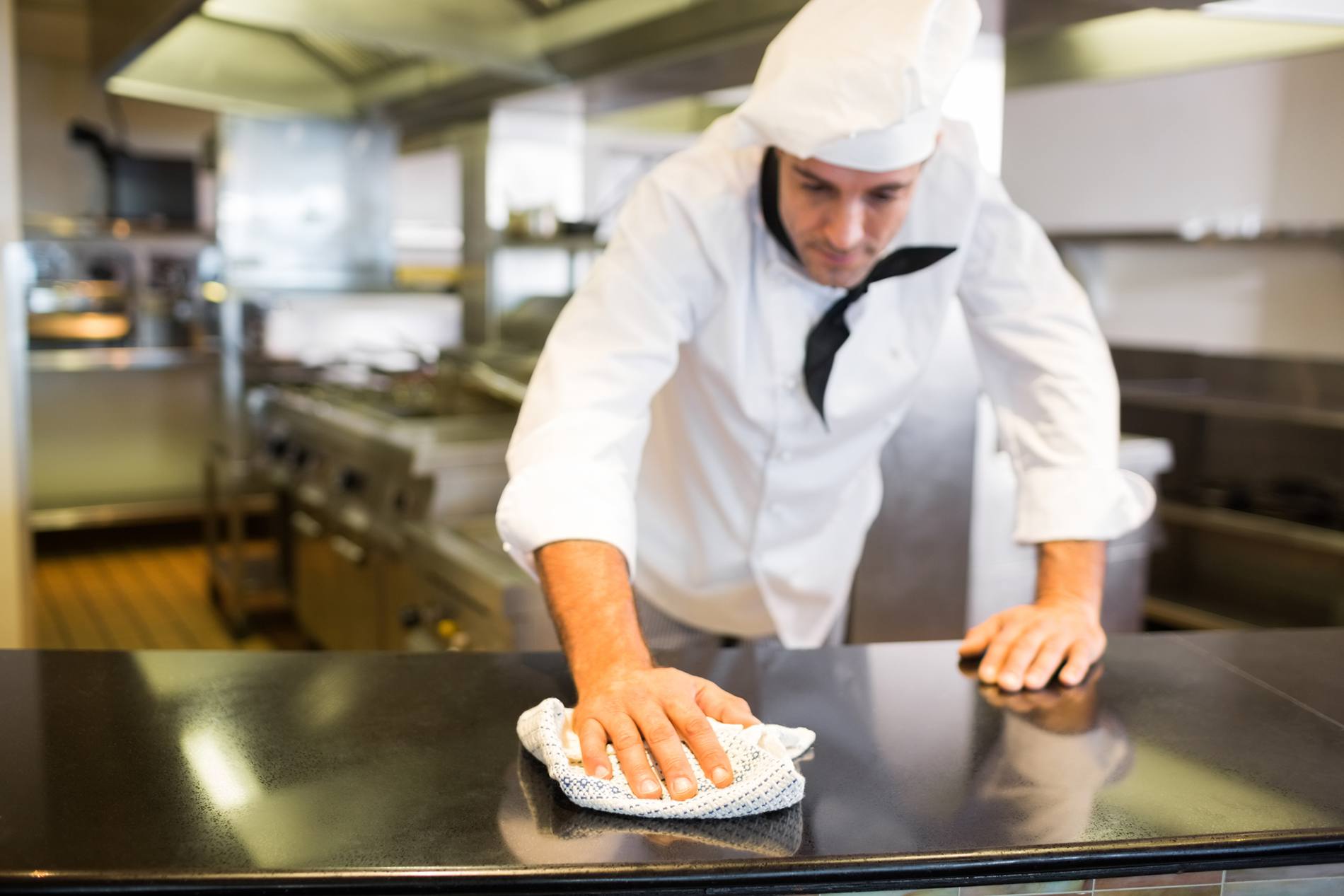
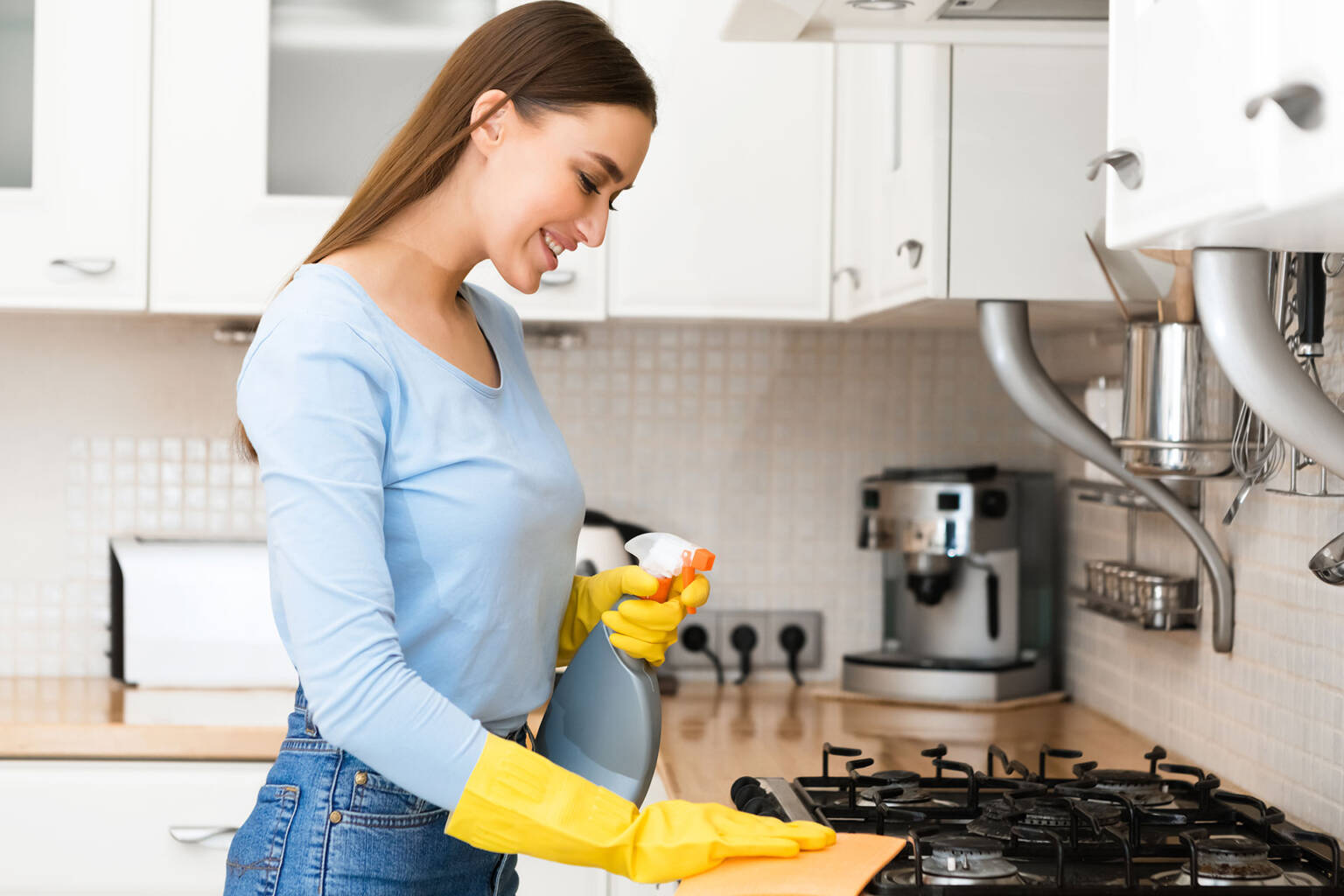
/washing-interior-walls-4-7f0658d4e2124a1a9f29507e115318ab.jpg)
